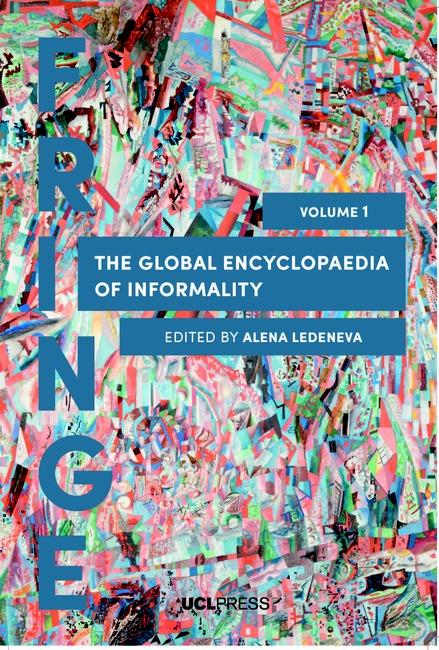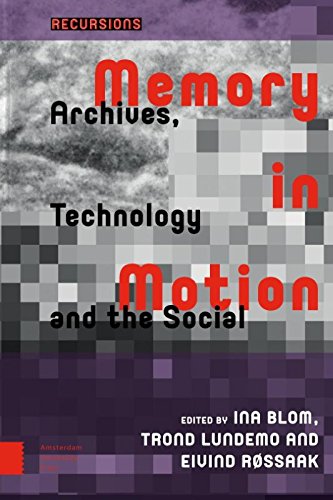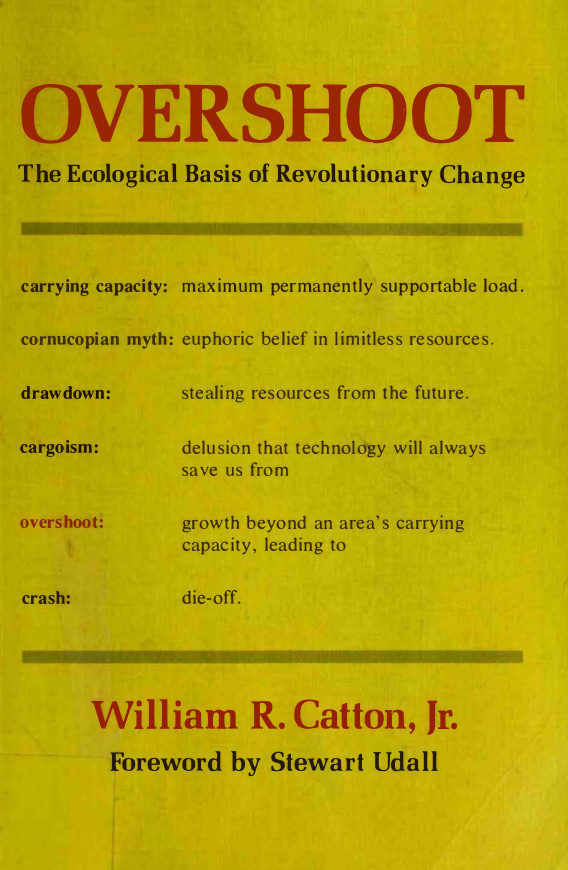The Global Encyclopaedia of Informality, 2 vols. (2018)
Filed under book, online resource | Tags: · blat, commodity, corruption, encyclopedia, gift, governance, informal economy, informality, market, social science, society, sociology, solidarity

“Alena Ledeneva invites you on a voyage of discovery to explore society’s open secrets, unwritten rules and know-how practices. Broadly defined as ‘ways of getting things done’, these invisible yet powerful informal practices tend to escape articulation in official discourse. They include emotion-driven exchanges of gifts or favours and tributes for services, interest-driven know-how (from informal welfare to informal employment and entrepreneurship), identity-driven practices of solidarity, and power-driven forms of co-optation and control. The paradox, or not, of the invisibility of these informal practices is their ubiquity. Expertly practised by insiders but often hidden from outsiders, informal practices are, as this book shows, deeply rooted all over the world, yet underestimated in policy. Entries from the five continents presented in this volume are samples of the truly global and ever-growing collection, made possible by a remarkable collaboration of over 200 scholars across disciplines and area studies. By mapping the grey zones, blurred boundaries, types of ambivalence and contexts of complexity, this book creates the first Global Map of Informality. The accompanying database (www.in-formality.com) is searchable by region, keyword or type of practice.”
Edited by Alena Ledeneva, with Anna Bailey, Sheelagh Barron, Costanza Curro, and Elizabeth Teague
Fringe series
Publisher UCL Press, London, 2018
Creative Commons BY 4.0 License
ISBN 9781911307907 & 9781787351899
xxix+434 & xxix+538 pages
Publisher, Vol. 2
OAPEN, Vol. 2
WorldCat, Vol. 2
Volume 1: PDF, PDF (10 MB)
Volume 2: PDF (15 MB)
Online resource (wiki)
Ina Blom, Trond Lundemo, Eivind Røssaak (eds.): Memory in Motion: Archives, Technology, and the Social (2016)
Filed under book | Tags: · archive, media, media archeology, memory, sociology, software, technology

“Sociology has long had approaches to describing the ways in which social memory is enacted through ritual, language, art, architecture, and institutions—phenomena whose persistence over time and capacity for a shared storage of the past was set in contrast to fleeting individual memory. But the question of how new media changes that equation is very much up in the air—how, in the age of digital computing, instant updating, and interconnection in real time, is social memory created and enacted? This collection offers a set of essays that discuss the new technology of memory from a variety of perspectives that explicitly investigate their impact on the very concept of the social.”
Contributors: David Berry, Ina Blom, Wolfgang Ernst, Matthew Fuller, Andrew Goffey, Liv Hausken, Yuk Hui, Trond Lundemo, Adrian Mackenzie, Sónia Matos, Richard Mills, Jussi Parikka, Eivind Røssaak, Stuart Sharples, Tiziana Terranova, Pasi Väliaho.
Publisher University of Amsterdam Press, 2016
Recursions series
Creative Commons BY-NC-ND 3.0 License
ISBN 9789462982147, 9462982147
332 pages
Review: Jan Baetens (Leonardo, 2017).
Comment (0)William R. Catton, Jr.: Overshoot: The Ecological Basis of Revolutionary Change (1980)
Filed under book | Tags: · biology, earth, ecology, environment, human ecology, sociology

This famous book outlines William R. Catton’s realization of “the urgent need for everyone, including sociologists, to recognize that our lifestyles, mores, institutions, patterns of interaction, values, and expectations are shaped by a cultural heritage that was formed in a time when carrying capacity exceeded the human load. A cultural heritage can outlast the conditions that produced it. That carrying capacity surplus is gone now, eroded both by population increase and immense techno-logical enlargement of per capita resource appetites and environmental impacts. Human life is now being lived in an era of deepening carrying capacity deficit. All of the familiar aspects of human societal life are under compelling pressure to change in this new era when the load increasingly exceeds the carrying capacities of many local regions—and of a finite planet. Social disorganization, friction, demoralization, and conflict will escalate.” (Catton, 2008)
Publisher University of Illinois Press, 1980
ISBN 0252009886
xvii+298 pages
PDF (16 MB, glossary missing)
Comment (0)
